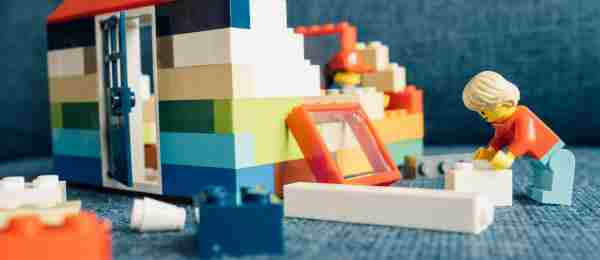Buying your first home can definitely be one of life’s great milestones.
But often, that milestone can seem like it’s getting further away, not closer.
So, how do you save for a home deposit?
Here are some things that could help:
- Using government incentives, such as the First Home Super Saver
- Careful planning
- Realistic goal-setting
- Sticking to a budget
- Saving smart
- Exploring other incomes, and
- Discipline (and some rewards)
With the right strategy and mindset, you can get there, and to help you out, we’ve collected some smart, genuine, and realistic tips on how best to save for a home loan deposit on your first home.
1. Jump on government schemes to reduce your deposit
The Australian Government and different state governments offer a variety of programs to help first-time buyers save for their home purchase.
If you’re eligible, the First Home Guarantee Scheme, for example, allows eligible first home-buyers to purchase a home with a deposit as low as 5% without paying for lenders’ mortgage insurance (LMI) (instead of the usual 20%).
On top of this, state governments have their own additional schemes such as first home owner grants (FHOG) or stamp duty concessions… or both!
2. Tap into voluntary super to help your deposit
Another scheme from the Federal Government is the First Home Super Saver Scheme (FHSS).
It lets you save money towards your first home purchase through your superannuation fund.
Instead of depositing savings into a bank account, you make voluntary contributions to your super.
When the time comes to buy your home, you can then withdraw up to $50,000 of it for your home deposit.
The FHSS comes with the added bonus of a lower tax rate of just 15% instead of your normal, higher tax rate.
If your marginal tax bracket is over 30%, there is a significant difference.

3. Set a savings goal you can realistically achieve
The next thing you could do is to set a realistic goal to work towards.
This will include looking at your existing savings, your current necessary expenses, your income and, of course, your estimated deposit.
Also, factor in things like potential stamp duty, conveyancer fees and other costs.
Once you have a clear idea of the costs associated with just getting the keys to the front door, you can set a savings goal that is achievable based on your income and expenses.
4. Crunch the numbers and create a budget.
Working out a budget to live on is an essential step in saving for a home – but it can also be a bit daunting, especially when you realise how much you spend on things like takeaway coffee over the course of a year (hint: $2,000+ is pretty common).
Keep a record of everything you buy, or use an app to track your spending, and in just a few weeks, you could get a pretty accurate run-down of what you’re spending and where.
The next step is to identify areas where you can cut back, and allocate the money you save towards your deposit.
You could also include a savings category in your budget and aim to save a certain percentage of your income each month.
5. Ease back on the luxury spends
This follows on from the point above. Reducing unnecessary expenses is one of the easiest ways to save money.
This can include cutting back on take-aways, entertainment expenses, and dropping a streaming service or subscription that you don’t use.
You can also save money by buying generic brands, using coupons, and shopping during sales.
It can also be a good idea to check in each year with your utility companies, insurers, credit card providers, gyms and telcos to make sure you’re getting the best deal.
Hint to them that you’re looking at their competitors and see if they quickly find some savings.
6. Bank smarter with a high-interest account
Banks are notoriously quick to raise their interest rates on loans, but pretty sluggish when it comes to raising rates on savings.
However, they do tend to be quite good at offering high-interest savings accounts and term deposits.
As long as they don’t come with hefty fees, these accounts could be an excellent way to earn more interest on your savings.
Not only do they typically offer a higher rate than regular deposit accounts, it’s also usually compound interest (i.e. interest on your interest), so you can reach your savings plan faster.
Make sure you understand the terms and conditions of your account, as there can be penalties for early withdrawal for some long-term savings and term deposit accounts.

7. Spread the costs through co-ownership
Buying a new home by yourself can be an even bigger struggle, but getting a trusted family member or friend on board to help out as a co-owner could reduce the amount of money you need to save for a down payment and other associated costs.
Even if they don’t qualify for the government schemes above, it shouldn’t usually affect your own eligibility (though the benefits may be reduced).
Just make sure everything is in writing and you agree on things like costs, buy-outs, breakdowns in relationships and selling the property, well before you commit.
Depending on where you live, you might even be able to co-own with your state government, under the various ‘shared equity’ schemes.
8. Give your income a boost
Getting a side-hustle (or asking for a raise) can help you build up your savings.
This might be a second job, making money from a hobby, freelancing, or, yes… asking for a raise.
If all that sounds a bit too daunting, consider selling unwanted items – every little bit counts.
9. Stay focused and disciplined
Sounds pretty easy – can be really difficult. Saving for a home does require discipline and focus.
Stay committed to your savings plan and goals and avoid temptations to spend money on unnecessary expenses.
A good way to stay motivated is by visualising your future home, making a scrapbook or online album of design, lifestyle or garden inspiration, and creating a list of the benefits of owning a home of your own (and the downside of renting or sharing) and take a look at it when your confidence or willpower start to waver.
And don’t forget to modestly celebrate key saving milestones with a little, inexpensive but enjoyable reward for hitting targets along the way – you’ve deserved it.
Saving for a home is daunting for most people, but by setting savings goals, banking wisely, living to a budget, taking advantage of government schemes, and even boosting your income, you can be on your way to owning your first home sooner than you think.
Side note: saving for a deposit in 12 months
Yes, it is potentially possible.
The government’s First Home Super Saver Scheme allows you to draw on voluntary super to put towards your deposit, but there are limits you can put in each financial year.
However, if you make one or more voluntary contributions before June 30, and more after June 30, then you can make use of two financial years (or four if you’re buying with someone else) rather than just one.



